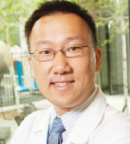
Ying Taur, MD, MPH
Researchers have shown that autologous fecal microbiota transplantation may be a safe and effective way to help replenish beneficial gut bacteria in patients with cancer who require intense antibiotics during allogeneic hematopoietic stem cell transplantation. Their findings were published by Ying Taur, MD, MPH, and colleagues in Science Translational Medicine.
Allogeneic hematopoietic cell transplantation involves a donor—often, but not exclusively, a family member—who gives the recipient stem cells that reestablish bone marrow production of blood cells and immune function to combat cancer. Antibiotics are essential to prevent bacterial infections in stem cell recipients. However, antibiotics also destroy beneficial bacteria that enhance immune function and resistance to infection. The loss of beneficial bacteria increases the risk of certain life-threatening infectious diseases and graft-vs-host disease.
In this study, patients who underwent the procedure were randomly assigned to receive either standard care or autologous fecal microbiota transplantation. The researchers found that autologous fecal microbiota transplantation resulted in the recovery of beneficial gut bacteria to near baseline levels within days, thus restoring patients’ digestive, immune, and other essential functions. With standard care, beneficial bacteria typically take many weeks to recover from antibiotic treatment, leaving patients at risk of other infectious diseases, including Clostridium difficile.

Anthony S. Fauci, MD
“This important study suggests that clinical intervention using auto-FMT can safely reverse the disruptive effects of broad-spectrum antibiotic treatment,” said National Institute of Allergy and Infectious Disease (NIAID) Director Anthony S. Fauci, MD. “If validated in larger studies, this approach may prove to be a relatively simple way to quickly restore a person’s healthy microbiome following intensive antimicrobial therapy.”
Study Findings
The study involved patients with cancer who provided their own fecal sample, which was frozen and stored prior to their cell transplantation procedure. Weeks later, when physicians confirmed that the transplanted cells were growing, they assessed the status of the patients’ beneficial gut bacteria. The first 25 patients who lacked known beneficial bacteria were enrolled into the study and randomly assigned to the different treatment groups: 14 received autologous fecal microbiota transplantation by enema and 11 received standard-of-care treatment.
The patients who received autologous fecal microbiota transplantation consistently regained bacterial diversity, composition, and function; recovery of beneficial bacteria in the 11 control patients was delayed.
The researchers are continuing to monitor the study patients to determine if autologous fecal microbiota transplantation improves patient outcomes, such as the incidence and severity of bacterial, viral, and fungal infections, and the incidence and severity of graft-vs-host disease. Whether fecal microbiota transplantation from a healthy donor would be as beneficial as the patient’s own fecal sample at restoring beneficial bacteria remains to be studied. ■
Taur Y, et al: Sci Transl Med. September 26, 2018 (early release online).

